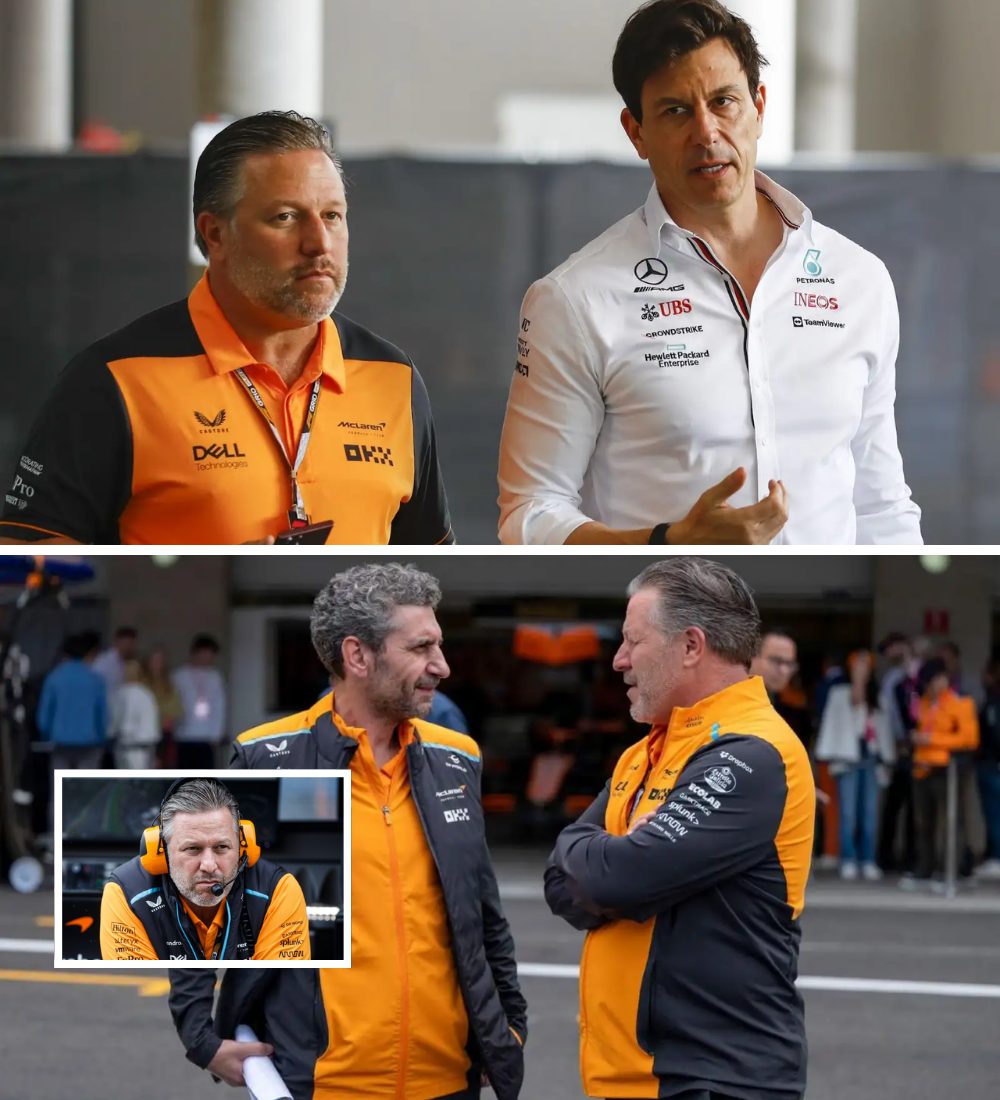The Wallabies’ hopes of the first grand slam in 40 years were dashed because their wider squad didn’t have the cohesion necessary to orchestrate an upset win against a superior side.
There were several issues which contributed to the poor cohesion, some were within the Wallabies’ control, some were not, others were just bad luck, but that was the full capabilities of this Wallabies team.
Sure, there were intangibles like the weather: Storm Bert brought snow and heavy rain across the entire UK, forcing the Wallabies to curtail their training and change their preparation considerably.
Similarly, no squad is ever at 100 per cent health, injuries are always a part of the rugby equation.
An altered and minimised training week, in an unfamiliar place would be fine for an experienced squad but Joe Schmidt’s men were light on caps throughout the matchday 23.
This is where the context of the 27-13-point defeat to Scotland begins to take shape.
While the Wallabies were a picture of the walking wounded, Scotland were near full strength.
The Scottish captain, Australian 𝐛𝐨𝐫𝐧 Sione Tuipulotu, said in the post-match press conference, he knew Scotland were the better side leading up to the weekend’s game.

Scotland’s Sione Tuipulotu speaks to Australia’s Angus Bell. (Photo by Ross Parker/SNS Group via Getty Images)
“The feeling throughout the week is we were pretty confident that we’re a better team than this Wallabies team,” Tuipulotu said.
“I’m not too sure if it’s an upset, or how the media views it, but we were very confident that we were going to be the better team today.”
“It’s a good win, but I don’t think it’s the best win or anything. The way we themed the week is we didn’t really feel like they had played a defensive team like us, and we also didn’t feel like they had played an attacking team like us.”
Scotland are currently ranked two spots higher than the Wallabies on the world rankings, have had the same coach for several years and have a consistent roster of players in their best years.
Wallabies coach Joe Schmidt last week called Scotland; a side with the bulk of their team in the “sweet spot” twice, a zone where players have ‘30-60 caps and are aged between 25-30 years.’
This is a zone where this Wallabies side will be in two years.
So, of course Scotland are a better side.
But it would be wrong, even for a moment, for Wallabies fans to think the result at the weekend is the best that their team can muster.
Or for that matter, that Scotland are without a doubt a better side in general. There is very little between Scotland and the Wallabies.
Why? Because even before a ball had been kicked at Murrayfield, there had been nine changes made from the starting XV that ran out against Wales, and four changes on the bench.
This equates to a staggering 13 changes to the matchday 23 from one week to another, few sides could make that many changes and expect an 80-minute performance.
Conversely, the hosts, Scotland, were on home turf, with combinations which have played together for years, and almost all their best starting lineup.
This is not to say the Wallabies would’ve won, had the eleventh-hour injuries and illness to Matt Faessler and Jeremy Williams not occurred.
Nor is it suggesting they would’ve triumphed had Taniela Tupou not been under an injury cloud and Samu Kerevi not suspended.
What it is positing, is that had these players been present, and coach Joe Schmidt selected the likes of Fraser McReight, the Wallabies could have stayed in the fight for longer.
Actually, it goes further, had Filipo Daugunu, Dylan Pietsch, Liam Wright, Tom Robertson, Hunter Paisami, Dave Porecki, and Lachlan Lonergan not been injured this season, then the Wallabies are in that contest right up to their hairlines.
This equates to 12 players, 12 Wallabies, who are all now established Test players, who have been consistent members of squads in recent years, unable to take the field for Schmidt.

Joe Schmidt. (Photo by David Davies/PA Images via Getty Images)
For Porecki, Lonergan, and Wright, their injuries robbed them of a lot of time in 2024, but they are strong contenders to enter the selection frame once fit and healthy in 2025.
Ok, that’s enough about the woulda, coulda, shoulda, but it had to be said, the Wallabies are better than that result, and fans should be excited by the potential of the squad Schmidt is building.
However, if we turn to the Scotland game, the team became unstuck as soon as the forward substitutes rolled on, around the 50th-minute.
The lack of cohesion was because there was a lack of continuity. Dome of Schmidt’s selection were third or even fourth string squad members, some which hadn’t played since September or August.
He selected two inexperienced props, in youngsters Isaac Aedo Kailea and Zane Nonggorr, who have six and nine caps respectively.
This issue was compounded by Faessler’s untimely injury.
This forced Schmidt to bring Brandon Paenga-Amosa into the starting side and call up another youngster, four cap hooker, Billy Pollard onto the bench.
Between Pollard and the reserve front rower, there were only a total of 19-caps, and all were 24 years and under: a front row too young to be the frontline of a Test side.
This plastered together side wasn’t helped by the late withdrawal of Williams, it altered the DNA of the Wallabies’ pack, making it bulkier and less dynamic.
The backs weren’t spared either, with cross-code star Joseph-Aukuso Suaalii lasting only half an hour, before leaving the field due to injury.
This saw winger Andrew Kellaway go to outside centre, with debutant Harry Potter on the wing and 20-year-old Max Jorgensen slotting onto the other wing, off the bench.
On-top of all these forced changes, Carlo Tizzano was promoted to No.7 in lieu of rested Fraser McReight, Harry Wilson slotted back into No.8 with Seru Uru dropping out.
Jake Gordon was back from a head injury, and Len Ikitau and JAS partnered in the centres for only their second game together ever.
It is truly a mess and from this chaos emerged the result.

The first casualty of mass changes and poor preparation is trust, that was the word of the week for the Wallabies leading up to the Murrayfield clash.
Trust in each other, trust in the gameplan, and trust in themselves.
The first rugby specific casualty from these disruptions is defence, because defence is built on trust.
For the Wallabies, their ‘connected line-speed’ defence is built on trust.
Trust that your inside man will hustle high and cover your inside shoulder, trust that the men around the ruck will get onto their feet and reload, trust that your teammate is where he should be.
Once the Wallabies’ substitutes started rolling on in the forwards, at the 50-minute mark, the trust which had kept the team within two scores began to wither.
The trust in each other which had seen them go to halftime at 7-3 down began to disappear, there were shades of Santa Fe emerging.
However, it never got that bad because despite Schmidt being correct in that “development is never linear,” there has been big improvement in this side since the record loss to Argentina.
Although the Scotsmen were a little off their game and failed to execute their finer s𝓀𝒾𝓁𝓁s in attack, the Wallabies nevertheless held on, showing grit and determination.
The Wallabies for 2024 have a magic number they must keep the opposition under if they wish to be in with a chance to win, that number is 23 points.
Which if adjusted for historical data reaching back into the 2000s has been averaged out to be around 20 points.
This rings true for the current Wallabies, had the Wallabies kept the Scots to 20-23 points, then with 12-minutes to go they could have been within two scores of winning.
But to move forward, the Wallabies must learn from the weekend.
The lesson they learnt the hard way is that inexperienced players who haven’t played together before, are a risk in the defensive line.
How many times have Tizzano, Kailea, Nonggorr, Potter, and Tate McDermott defended together? Let me give you clue; it rhymes with hero.
In this instance, Potter makes the first error in getting too high.
In defence coach Laurie Fisher’s ‘connected line speed’ system, the outside man, particularly as the third man out, should never get a meter in front of the inside man.
This is compounded by Nonggorr biting-in on maverick flyhalf Finn Russell when he had already released the ball.
Potter did well to make the ankle-tap, but the damage had already been done.
In the end, the Wallabies thwart the attack, but it shows how small margins can undo a defence at Test level.
Here, the Scots show they did their homework on the Wallabies’ fold etiquette after a set piece.
Pollard and Kailea fold too hard to the openside, despite Scotland only having five men on that flank.
Had either of them stayed on the open side, Lukhan Salakaia-Loto could have rushed hard to fill the space between himself and Nonggorr and plugged the gap no.11 Duhan van der Merwe slices through.
Admittedly, LSL slips of a tackle he should’ve made but this is 70-minutes into a big effort form the tight forward, a factor Nonggorr and Nick Frost should’ve considered in their rush.
In both these instances, the Wallabies were outnumbered on the respective sides by one player.
A deficit a ‘connected line speed’ defence should theoretically deal with exceptionally well, as opposed to a rush a defence, but instead they allow the Scotsmen to make breaks on the inside of their defence.
Something, which within their system, shouldn’t be happening.
This is what a lack of cohesion, continuity, and experienced does, players are different pages, and it turns small differences of implementation into big problems.
As the full-time whistle blew, LSL was the most experienced forward on the field with 38-caps.
He gapped the next highest capped Wallaby by almost double.
Most of the pack had 12-caps or less each and the most experienced player on the field was McDermott with 39-caps.
This inexperienced selection was totally within Schmidt’s control and yet he decided to rotate.

Australia players after the Autumn International match at Scottish Gas Murrayfield Stadium, Edinburgh. Picture date: Sunday November 24, 2024. (Photo by Andrew Milligan/PA Images via Getty Images)
But this is not a critique of Schmidt, it is just the reality considering the injuries and a squad to manage under a long campaign.
Now, it must be remembered that Schmidt’s goal has always been to build a side ready to take on the British and Irish Lions in 9-months’ time.
His only barometer of success, ever since he signed on the dotted line has been the Lions.
The Wallabies stocks at this point in the year are not the side which will be selected come July-19 2025, for their first Lions Test.
Those 12 players which were not selected for one reason or another, will be in the mix, making the cap count and experience much higher.
Although this doesn’t bode well for Ireland in a few days’ time, there is still enough starch in this touring squad to put in an 80-minute performance.
The Wallabies are not yet done for 2024.





